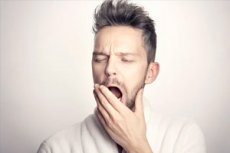New publications
Are hangover pills really effective?
Last reviewed: 02.07.2025

All iLive content is medically reviewed or fact checked to ensure as much factual accuracy as possible.
We have strict sourcing guidelines and only link to reputable media sites, academic research institutions and, whenever possible, medically peer reviewed studies. Note that the numbers in parentheses ([1], [2], etc.) are clickable links to these studies.
If you feel that any of our content is inaccurate, out-of-date, or otherwise questionable, please select it and press Ctrl + Enter.

Many people are familiar with the hangover that develops after heavy drinking. Some people feel so bad that the morning after drinking, the first thing they do is head to the nearest drugstore for anti-hangover remedies. Scientists have tried to understand their effectiveness – and were surprised.
British experts from the National Addiction Centre at the Royal School in London have assessed popular hangover cures and found that most of them are just placebos.
The study examined more than two dozen scientific papers analyzing the effect of popular anti-hangover components on the human body - L-cysteine, clove extract, Korean ginseng, Chinese pear. In total, the effect of more than twenty drugs was analyzed. Four hundred volunteers took part in the project. It is important to note that the effect of popular analgesics such as acetylsalicylic acid and paracetamol was not assessed.
The results of the study showed that clove extract had a relatively noticeable effect: tablets and liquids with this component alleviated the hangover symptoms by approximately 19% (in the participants of the experiment after drinking alcohol).
Experts believe that the information obtained during the study is not entirely correct. Thus, the number of volunteers was relatively small, there were no people over 65 years old or women among the participants. The negative effect of hangover remedies on the body was also not initially studied (and many experts point out that these drugs are harmful to health). Thus, some hangover remedies aggravate headaches, cause nausea and even a strong allergic reaction. Unfortunately, the vast majority of such products, offered over the counter in pharmacies, are not medicines, but biologically active supplements, consisting mainly of herbal mixtures and extracts.
Scientists explain: as for a hangover, it is easier to prevent it in advance than to treat it. It is best to abstain from alcohol during a party, or drink alcoholic beverages in moderation. And if a hangover syndrome develops, you should take several tablets of activated charcoal (1 tablet per 10 kg of body weight), drink enough clean drinking water during the day. If you have a headache, you can take a tablet of acetylsalicylic acid, and in case of severe intoxication, an enema will help. And even better - do not self-medicate and, if possible, consult a doctor.
The results of the study were published on THEGUARDIAN page
